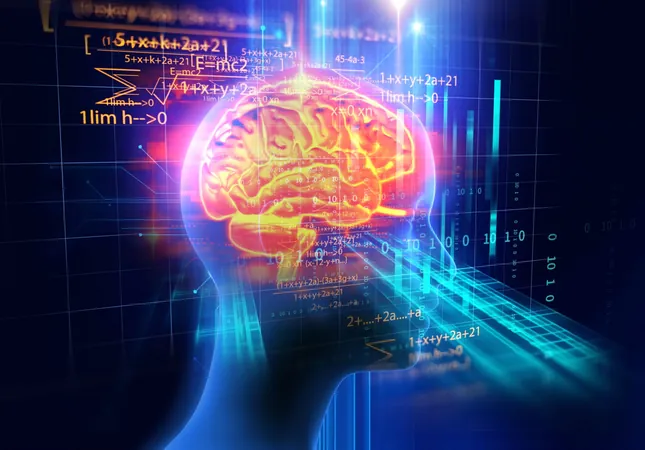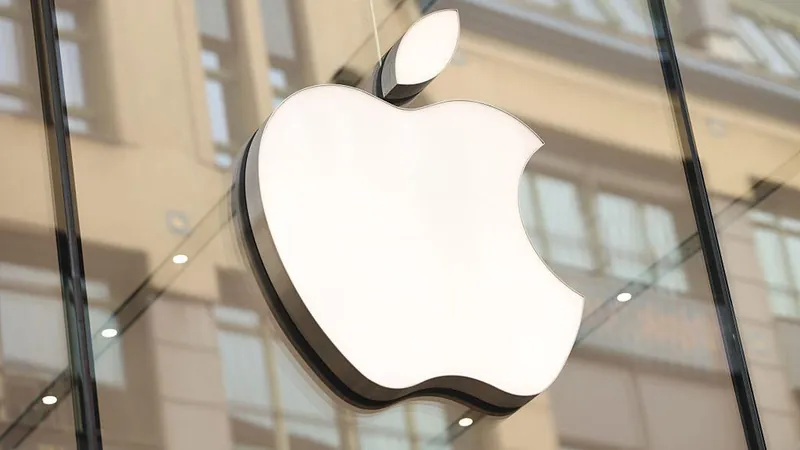
Human Brain Processing Speed: A Surprising Reality Check Compared to Wi-Fi
2024-12-28
Author: Ying
Understanding the Brain's Processing Speed
Have you ever paused to ponder why it takes us a while to process the whirlwind of information around us? Or why multitasking often leads us to feel overwhelmed? The key to these questions lies in the incredible yet frustratingly slow processing speed of our brains.
A Stark Contrast in Data Processing
Recent research has unveiled that, while our sensory systems can collect data at a stunning rate of one billion bits per second, the human brain processes this flood of information at a mere 10 bits per second. This stark contrast highlights just how much slower our mental processing is compared to even the average Wi-Fi connection, which operates at around 50 million bits per second.
The Brain's Cautionary Design
So why is our thinking rate so sluggish? Markus Meister, a co-author of the study from CalTech, explained this dilemma: “Every moment, we extract just 10 bits from the trillion that our senses are taking in. This raises the question: What is the brain doing to filter this information?”
Although the brain contains approximately 85 billion neurons, each firing signals faster than the brain’s collective 10 bits per second processing rate, it appears that our neural network is designed with caution in mind. Instead of racing through data, our brains prioritize critical information for survival and decision-making, focusing on quality rather than quantity.
Evolutionary Perspectives
This inherent limitation likely evolved for evolutionary survival strategies. Primitive organisms relied on basic nervous systems that emphasized essential tasks such as seeking food or avoiding threats. As humans evolved, this focus on survival remained, making our brains proficient at sequential problem-solving rather than multitasking. Consider a chess player: they cannot calculate every potential move instantaneously but analyze one possible sequence at a time.
Computers vs. Human Brains
In stark contrast, computers can perform countless calculations in parallel, demonstrating a key difference in computational efficiency. While machines can execute many operations simultaneously, human brains are wired to tackle tasks in a more methodical, focused manner.
The Filtering Mechanism of the Brain
Interestingly, our brains excel at filtering and prioritizing. Despite being inundated with trillions of sensory inputs, we naturally filter out unnecessary data, concentrating on what is vital for our immediate survival. Meister notes, “Our ancestors operated in an ecological niche where the pace of change was manageable for survival. Our 10 bits per second processing speed is sufficient most of the time, allowing us to focus on immediate tasks.”
Implications for the Future
However, what does this mean for our future, especially with rapid advancements in artificial intelligence? As machines improve, they may overtake humans in decision-making and problem-solving — tasks that rely heavily on computational speed. Scientists predict that computing power, which doubles approximately every two years, could soon rival and exceed our cognitive capabilities.
Despite our slow processing speed, humans excel in creativity, emotional intelligence, and adaptability—traits machines have yet to master. The discovery of our brain’s processing cap invites intriguing questions for neuroscience and AI development. Understanding the implications of our brain's speed limits could lead to enhancing human cognition and improving technology to support our unique skills better.
Future Research Directions
As future research unfolds, we may uncover deeper insights into how our brain functions and how these limitations shape our decision-making processes, creativity, and our interactions with the increasingly intelligent machines we create.
Stay tuned for more insights into the fascinating intersection of human cognition and technology!


 Brasil (PT)
Brasil (PT)
 Canada (EN)
Canada (EN)
 Chile (ES)
Chile (ES)
 Česko (CS)
Česko (CS)
 대한민국 (KO)
대한민국 (KO)
 España (ES)
España (ES)
 France (FR)
France (FR)
 Hong Kong (EN)
Hong Kong (EN)
 Italia (IT)
Italia (IT)
 日本 (JA)
日本 (JA)
 Magyarország (HU)
Magyarország (HU)
 Norge (NO)
Norge (NO)
 Polska (PL)
Polska (PL)
 Schweiz (DE)
Schweiz (DE)
 Singapore (EN)
Singapore (EN)
 Sverige (SV)
Sverige (SV)
 Suomi (FI)
Suomi (FI)
 Türkiye (TR)
Türkiye (TR)
 الإمارات العربية المتحدة (AR)
الإمارات العربية المتحدة (AR)